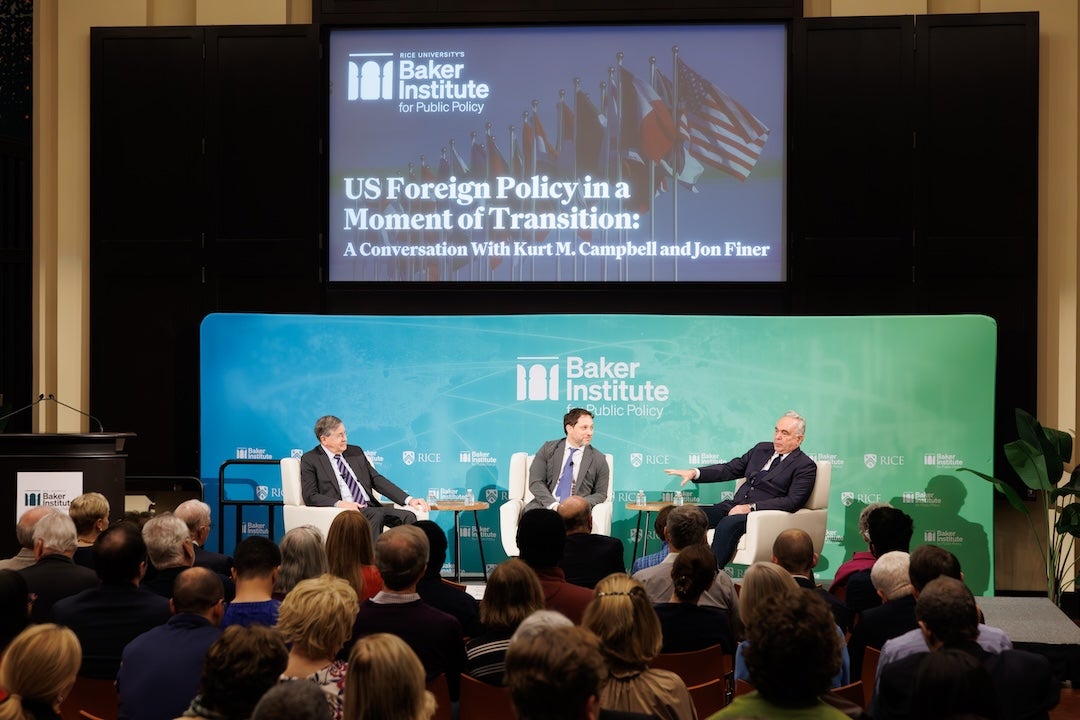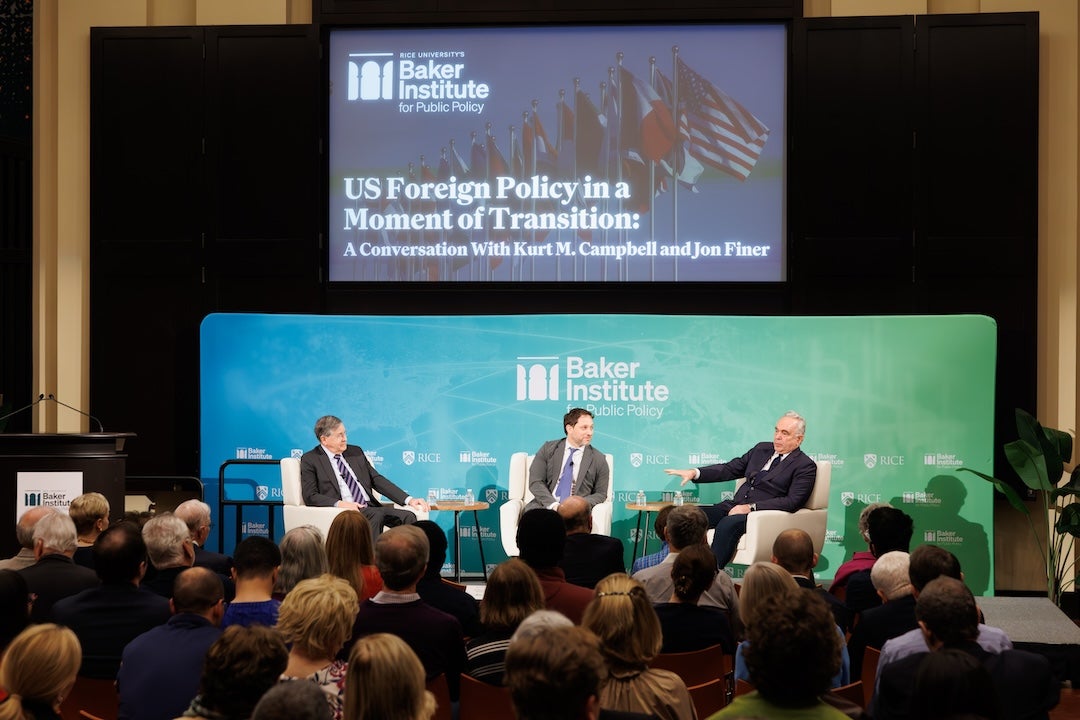Deputy Secretary of State Kurt Campbell and President Joe Biden’s Principal Deputy National Security Adviser John Finer spoke at Rice University’s Baker Institute for Public Policy Dec. 17 to discuss the current administration’s successes.
Moderated by Baker Institute Director, former U.S. Ambassador and U.S. Special Envoy for Middle East Humanitarian Issues David Satterfield, the conversation focused on the current U.S. administration’s policy accomplishments and key issues as well as the opportunities and challenges facing the incoming administration.
“I do want to say thanks to you and to the Baker Institute for having us and parochially, to you, for the work that you did in our administration and many before that,” Campbell said. “I won’t say how many, but (we) are really grateful on one of the hardest jobs we had, which is the humanitarian situation in Gaza.”
One of the achievements Campbell highlighted was the bipartisan legislation to strengthen the U.S. industrial base and enhance relationships with key allies like Japan, South Korea and India.

“We will be handing off, in my view, a very strong hand in the world to our successors,” Campbell said. “First and foremost, we have strengthened the sources of America’s power and influence in the world through several seminal pieces of legislation that have been passed on a bipartisan basis in the course of this administration to strengthen the United States industrial base, our economy, our infrastructure, our technological edge, in a time when … let’s just say it’s not easy to get big pieces of legislation through Congress.”
The statesmen discussed global events ranging from the fall of the Assad regime in Syria, the rapid expansion of the U.S.-India partnership and the ongoing conflict in Ukraine to managing tensions with China and North Korea.
“The two countries that have supported Russia the most, one more quietly and one quite directly now, are China, North Korea,” Finer said. “China has provided remarkable support to Russia’s defense industrial base, and that partnership between Putin and Xi is something that we’re really going to have to watch. It’s an issue of concern. But we’re also seeing North Korean troops for the first time come across the giant land mass of Eurasia to serve side by side with Russians against the Ukrainians.
“So it is a dangerous set of encounters. I will say that the focus that the president has put on this and the unity we have seen in Europe, no one would have anticipated that three years ago, and it’s quite remarkable. And the hope will be that this unity will be able to pull us through, and we will be able to stand by a Ukraine that remains free and able to make its own decisions in the world.”
Both men emphasized the importance of maintaining strong alliances and partnerships, particularly in the Indo-Pacific region and Africa, to counter challenges from China and Russia. They also underscored the need for continued support for Ukraine and the importance of international engagement for U.S. interests.
“I do believe that most Americans think that the United States is better off with closer, deeper partnerships, and to achieve that in the world today requires a deepening of cooperation in technology, in intelligence, in military cooperation across the board,” Finer said.
To watch the full recording and other conversations from the Baker Institute, visit YouTube.
Created and endowed by former Baker Institute Director and Ambassador Edward P. Djerejian and Mrs. Françoise Djerejian, the Director’s Lecture Series provides a forum for productive discourse to advance the public’s understanding of the most critical challenges facing Texas, the U.S. and the world.

